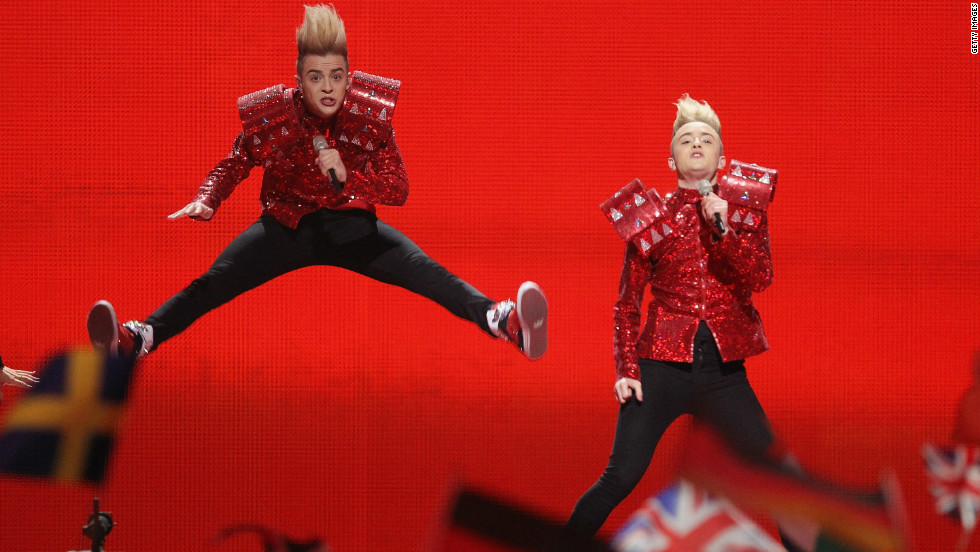Eurovision 2016: 9 things you need to know

Even if you don't live in Europe, you don't want to miss out on the fabulousness that is Eurovision. Actually, especially if you don't live in Europe.
Here's what you need to know about Eurovision 2016 and its final Saturday in Stockholm, Sweden:
What it is
The Eurovision Song Contest is an annual competition that pits singers from participating countries against each other. To be eligible, contestants must be from one of the member countries that make up the European Broadcasting Union.
Forty-three countries were supposed to be represented this year, but Romania went and got itself expelled for reportedly failing to pay outstanding debts. Each country has a contestant who sings an original song and attempts to bring home the glory.
It's quite theatrical. Think the Oscars, Grammys, Tony Awards, "American Idol," "The X Factor" and "America's Got Talent" all rolled into one — and then triple that.
How it works
Viewers from participating broadcasters can vote for their favorite song but not for their own country. The votes can be cast via telephone, SMS or using the official app.
There is also a jury of professionals. Votes from the professional juries and viewers used to be combined and then counted as 50% of the final score.
But according to Eurovision's site, "this year the professional juries and televoters from each country will each award a separate set of points from 1 to 8, 10 and 12."
"This now means the top 10 countries in both the jury and televote will receive points, adding a new level of excitement for hundreds of millions of viewers in Europe and beyond," the rules on the site say.
As if Eurovision needs to be more exciting!
It gets political
If some folks are to be believed, Eurovision can be like a musical "House of Cards."
Block voting, nationalism and a settling of old scores ("If you think I'm voting for you after you all invaded our country a few years ago, you are nuts!") have long been accusations when it comes to Eurovision.
In 2003, the UK's stance on the Iraq War was blamed for the incredibly poor showing of British pop duo Jemini.
Speaking of politics, this year organizers are dissuading contestants from getting political with their song choices.
What's the history?
Eurovision is one of the longest-running television events.
The idea of an international song contest came up a few years after the European Broadcasting Union's formation in 1950. The first Eurovision contest was held in 1956, and it's been going strong since.
Who will win?
Your guess is as good as ours, but we can tell you there will definitely be a winner.
Are people into it?
Umm, yeah.
Almost 200 million watched last year from dozens of countries, and this year there are watch parties being held everywhere from London to New York.
If that viewing total doesn't seem like a big deal, think of it like this: This year's Super Bowl attracted a little more than 115 million viewers.
What's the point?
It's fun, it's entertaining, and we can thank Eurovision for blessing the world with performers such as Abba, Celine Dion and Conchita Wurst.
Where can you watch it in the States?
Glad you asked.
The European Broadcasting Union and Viacom brokered a deal so American audiences can watch this year on cable's Logo channel.
"Eurovision is a cultural phenomenon we have admired from afar for years," Logo general manager Chris McCarthy told The Guardian. "We are thrilled to bring the event to U.S. audiences and cheer alongside the rest of the world."
The cable channel will air Saturday's championship round, starting live at 3 p.m. ET, and will stream it on LogoTVcom.
Don't have cable? Eurovision.tv and the Eurovision You Tube channel will also be streaming it.
Will there be alcohol?
Depends on where and with whom you are watching.
Probably not if you depend on that one friend who always conveniently can't find his wallet when it's time to make a run to the liquor store or who promises to bring something and shows up with an open bag of Doritos and an appetite.
Looking at you Chuck.
Политика конфиденциальности | Правила пользования сайтом







